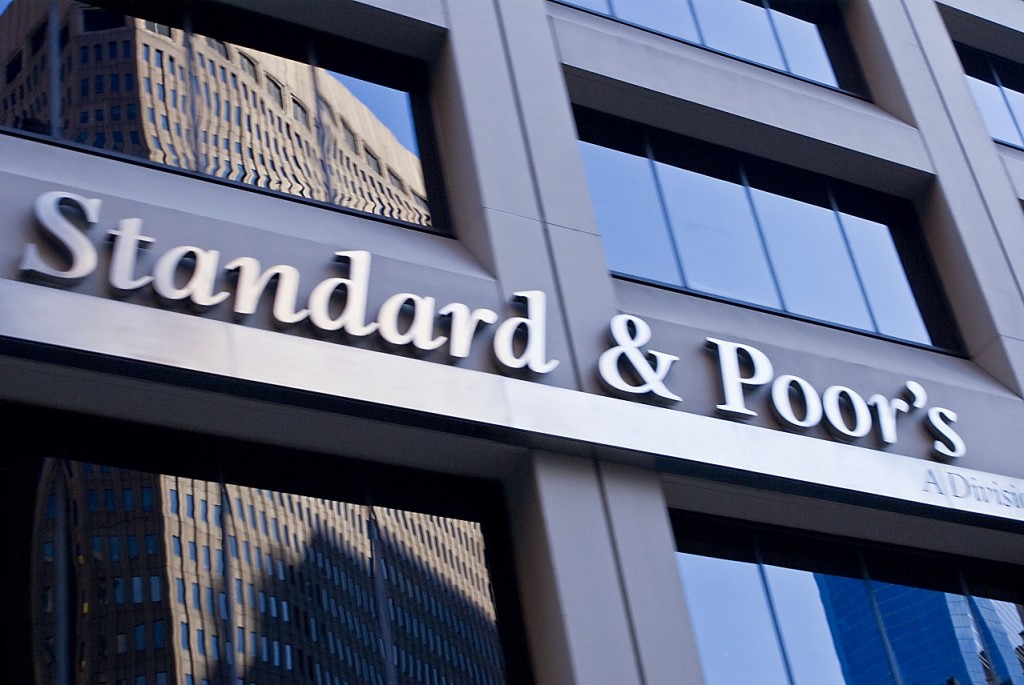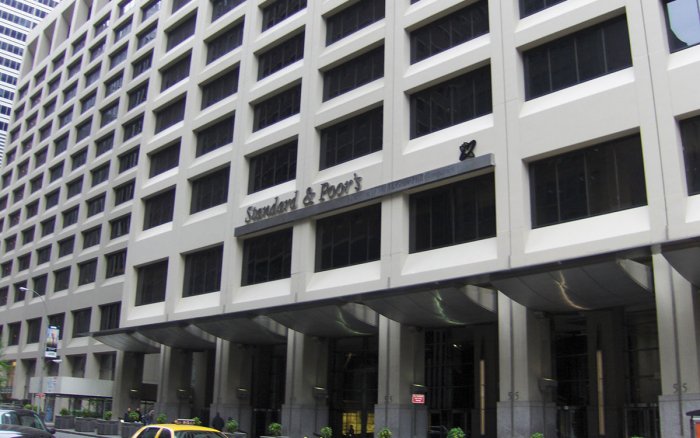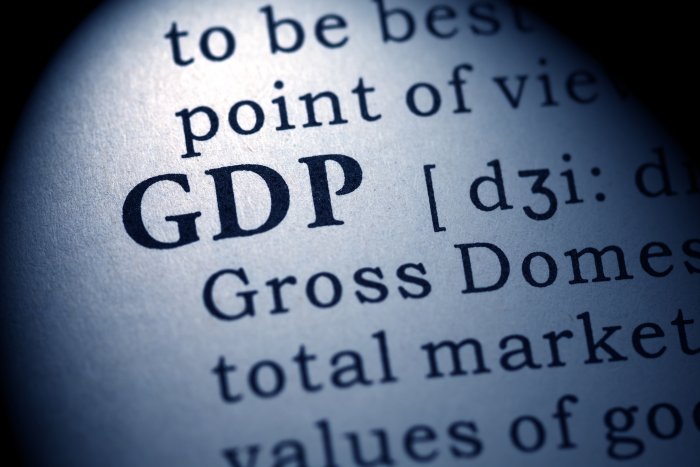S&P revises outlook on Hungary rating to ‘positive’

Standard & Poorʼs Global Ratings revised the outlook on Hungaryʼs "BBB-/A-3" long and short-term foreign and local currency sovereign credit ratings from "stable" to "positive" on Friday. However, the ratings agency also pointed to negative factors that could slow down economic growth.
"The outlook revision reflects our expectation that Hungaryʼs improving economic and external metrics might support ongoing improvements in the financial sector and thus strengthen the monetary transmission channel," S&P said, as quoted by national news agency MTI.
The ratings agency said it expects loan growth to resume and non-performing loans (NPLs) to stabilize at around 10% on the back of a gradual recovery in demand for new loans, the recent recovery in real estate prices and measures by the central bank to stimulate lending, as well as prudent regulatory efforts.
S&P also acknowledged the impact of a gradual decline in the bank levy on the banking sectorʼs return to profitability in 2016.
S&P said Hungaryʼs "strong external profile and its track record of fiscal restraint" support the sovereign ratings. "Moderate long-term growth prospects, high public debt, and a so far impaired monetary transmission mechanism are key constraints to the ratings," it added.
GDP growth at 3.5% in 2017, slowing later
S&P said it believes Hungaryʼs real GDP growth for 2017 "will approach 3.5%" due to booming consumption triggered by fiscal stimuli and minimum wage hikes; a substantial recovery in EU fund absorption; the gradual reduction in the bank levy; rising expenditure on housing subsidies; real wage and employment gains; and stronger private sector balance sheets.
However, it also added that "structural growth challenges," such as poor demographics, a "large and encroaching" public sector, weaknesses in the business environment, low productivity and an overheating labor market will slow the pace of average GDP growth to "just under 2.5%" per year between 2018 and 2020.
S&P said "some unconventional policies" employed by the government had been "instrumental in reducing external vulnerabilities and securing macroeconomic stability." It also acknowledged the governmentʼs "ambitious" reform agenda aimed at boosting competitiveness and productivity.
Weakened checks and balances
At the same time, the agency added that institutional changes implemented since the Orbán government came to power had "weakened the checks and balances between branches of government."
"The consequent concentration of power has resulted, in particular, in expanding the influence and size of the public sector at the expense of governance, in our view," S&P said.
S&P said it assumed fiscal slippage would be "negligible" in spite of the governmentʼs plans to continue its fiscal stimulus through tax cuts and higher spending in the 2017 budget. It projected general government deficits of 2.3% of GDP, on average, in 2017-2020.
S&P projected state debt as a percentage of GDP would fall to "about 66%" in 2020, from 70.4% in 2016. The agency noted that its fiscal forecast did not factor in any contingent risk, such as capital injections into development institutions, new state acquisitions, or spending on visible capital projects.
Positive and negative scenarios
S&P said it could raise Hungaryʼs sovereign ratings if the developments it noted in the financial sector "proved sustainable and improved the relatively low effectiveness... of Hungaryʼs monetary transmission channels." This would be triggered by further reductions in the banking sectorʼs NPLs and a sustainable recovery in lending, in parallel with continued economic recovery accompanied by current account surpluses and contained fiscal deficits, it added.
"This upside scenario also assumes that the real exchange rate remains in line with underlining fundamentals," S&P noted.
The outlook could be revised back to "stable" if lending growth remains subdued or if the downward trend in the NPL stock is halted, S&P stressed.
"A negative rating action could also occur if Hungaryʼs public finances weakened; external vulnerabilities built up again, contrary to our current expectations; exchange rate policy became more interventionist; or we observed further institutional weakening, especially if we anticipated an eventual fiscal risk associated with such developments," it added.
SUPPORT THE BUDAPEST BUSINESS JOURNAL
Producing journalism that is worthy of the name is a costly business. For 27 years, the publishers, editors and reporters of the Budapest Business Journal have striven to bring you business news that works, information that you can trust, that is factual, accurate and presented without fear or favor.
Newspaper organizations across the globe have struggled to find a business model that allows them to continue to excel, without compromising their ability to perform. Most recently, some have experimented with the idea of involving their most important stakeholders, their readers.
We would like to offer that same opportunity to our readers. We would like to invite you to help us deliver the quality business journalism you require. Hit our Support the BBJ button and you can choose the how much and how often you send us your contributions.









